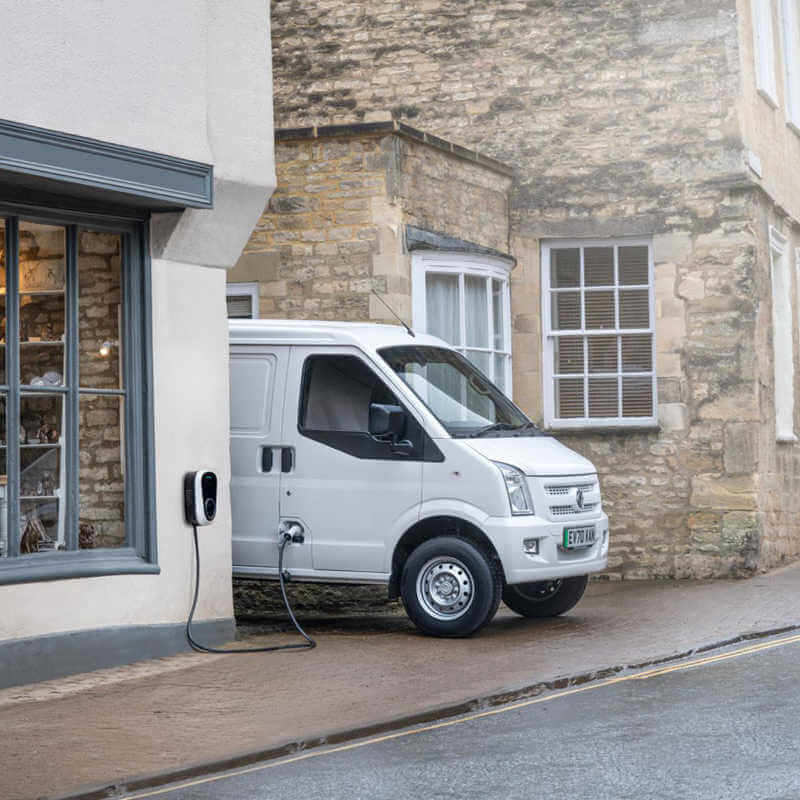The Festival of Motoring (FoM) has been a launchpad for many new brands and products in South Africa. This year was no different for EnviroWheels, giving showgoers an early glimpse of what is expected from its range of commercial electric vehicles (CEVs).
Article by: EnviroWheels
Using CEVs in transport fleets is still a new concept in South Africa. However, local transport operators are quickly warming up to the idea because of the massive savings in operational costs. CEVs also offer additional benefits that improve fleet management efficiencies and reduce a fleet’s total cost of ownership (TCO).
AL Troskie of EnviroWheels, explains that a need for battery-electric vehicles in their own group of companies prompted them to research the feasibility of local market introduction. “Our initial research was confirmed at the FoM. There was tremendous interest in CEVs from showgoers and the Media, and we could hardly keep up with the demand for test drives.”
EnviroWheels plans to launch its battery-electric panel van in November and its one-tonne forward-cab bakkie early in 2023. The company is currently testing its panel van, analysing data to determine the ranges and energy consumption in real-world South African conditions.
“It was clear at the FoM event that transport operators were extremely worried about high fuel prices and the impact of inflation on service parts. CEVs offer unmatched operational cost and efficiencies because they have fewer moving parts than a vehicle fitted with a conventional internal combustion engine (ICE),” adds Troskie.
A CEV fleet is the most cost-effective mode of transport, and it simultaneously reduces an organisation’s emission footprint and boosts its green credentials. This inspired EnviroWheels to align with several international EV partners to introduce a range of CEVs that best fit the needs of transport operators and last-mile delivery conditions in the local market.
The DFSK EC35 battery-electric panel van will lead EnviroWheels’ charge in the local market. It is practical and particularly manoeuvrable in tight parking and load bay areas. It offers a payload of 1 015 kg and a large loading space of 4.8 m³. The cargo area’s dimensions are 2 530 mm (L) x 1 440 mm (W) x 1 270 mm (H).
The practical load compartment of the two-seater EC35 is accessible via sliding doors on both sides of the panel van and the tailgate, making loading and offloading easy. The EC35 features ABS (Anti-lock Braking System) and Electric Power Steering (EPS). It boasts a selection of modern-day driver comforts, including air-conditioning, a reverse camera, rear parking sensors, Bluetooth and a touchscreen infotainment system.
Charging the EC35’s battery will cost as little as R56.50 and yield a travel distance of up to 270 km, depending on load and traffic conditions. Although transport operators plan their fleets’ trips so that vehicles can be recharged at their bases, it is also possible to recharge EVs at more than 300 fast and rapid public EV charging points across South Africa. With a fast charger, the battery could be charged from zero to 80 percent in less than an hour, offering a 200 km range.
The DFSK EC31 forward-cab bakkie offers a payload of 1 020 kg and will be available in chassis-cab, dropside and cargo box configurations. The dimensions of the load box are 2 900 mm (L) x 1 540 mm (W) x 350 mm (H). It offers the same driver comforts and specification levels as the EC35.
Both derivatives are backed by DFSK’s three-year/60 000 km manufacturer warranty and service plan. The traction battery has a five-year/120 000 km warranty. Minimal maintenance is required, and services are scheduled every 12 months or 20 000 km.
“These workhorses are reliable and of outstanding quality. With a 25 cents per kilometre operating cost and low service and maintenance bills, these workhorses are ideal for today’s demanding delivery market,” says Troskie.
Troskie concludes that the company has big plans for the local CEV market. “Over the next couple of months, our distribution strategy and agent- and customer support structures will be implemented. Following the introduction of our DFSK range, we will introduce a battery-electric 4-tonne truck. We are also investigating the introduction of a range of exciting electric motorcycles and passenger cars in the future.”

